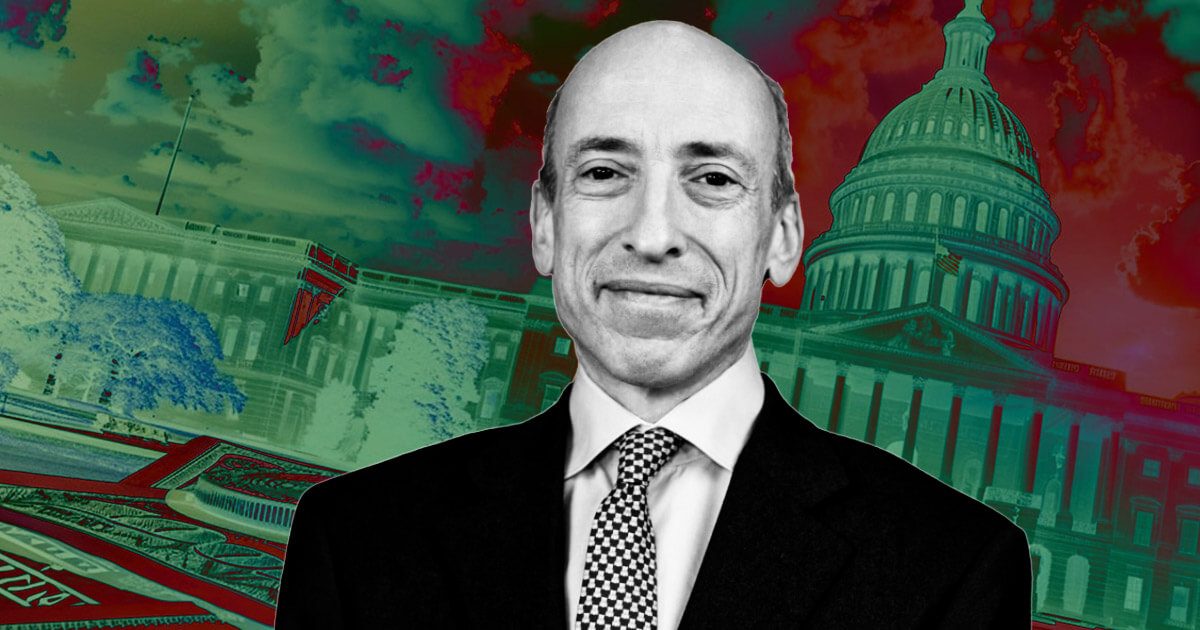
Gary Gensler, Chairman of the US Securities and Alternate Fee (SEC), issued an announcement on Could 22 expressing sturdy opposition to the Monetary Innovation and Expertise for the twenty first Century (FIT21) Act.
The FIT21 Act is broadly celebrated for providing regulatory readability to the crypto business. Nonetheless, Gensler has criticized it, arguing that the invoice would weaken present shopper protections within the crypto market.
The President Biden administration mentioned it opposes the invoice’s passage. Nonetheless, the White Home clarified that it was prepared to work with the US Congress to “guarantee a complete and balanced regulatory framework for digital property, constructing on present authorities.”
Notably, the US Home of Representatives is scheduled to vote on the invoice later at this time, Could 22.
Gensler’s dissent
Gensler warned that the proposed invoice would create vital regulatory gaps, undermining many years of precedent in overseeing funding contracts and placing traders and capital markets at substantial danger.
The SEC chair additional highlighted that the regulation would stop blockchain-based funding contracts from being labeled as securities. This alteration would allow crypto funding contract issuers to self-certify their merchandise as decentralized, successfully eradicating them from SEC oversight. He added:
“The SEC would solely have 60 days to overview and problem the certification {that a} product is a digital commodity. People who the SEC efficiently challenges could be re-classified as restricted digital property and topic to the invoice’s lighter-touch SEC oversight regime that excludes many core protections. “
Furthermore, Gensler criticized the invoice for abandoning the Howey Check, a key technique for figuring out if an funding qualifies as a safety. He argued that this might result in lowered protections for the few funding contracts which can be thought of securities. Moreover, he identified the dangers posed by excluding crypto asset buying and selling platforms from being labeled as exchanges.
Gensler emphasised that the invoice poses a big risk to the American capital market and its traders. He acknowledged that the laws would undermine capital markets by permitting companies to evade enforcement actions extra simply.
FIT21 enjoys assist
Regardless of Gensler’s antagonism in direction of the invoice, the proposed laws enjoys sturdy assist from the US Congress and the crypto neighborhood.
In a Could 21 assertion, Congressman French Hill, the Chairman of the Subcommittee on Digital Property, Monetary Expertise, and Inclusion, mentioned the invoice provides the SEC authority over digital property that aren’t licensed underneath the laws and would offer sufficient securities to guard in opposition to one other FTX-like scenario.
A number of crypto firms, together with Coinbase, Circle, Kraken, Gemini, and advocacy group Stand With Crypto, have urged US lawmakers to assist the laws. The Crypto Council for Innovation (CCI) acknowledged:
“FIT 21 will introduce new compliance challenges for digital property firms, however regulatory readability is indisputably extra accountable, safer for customers, and preferable to the established order.”
Because the invoice awaits at this time’s vote, the White Home has confirmed that it’ll not try to veto it if it passes, regardless that it does “oppose” the invoice. The vote will probably now be one of the essential items of crypto laws to be voted on by Congress.






